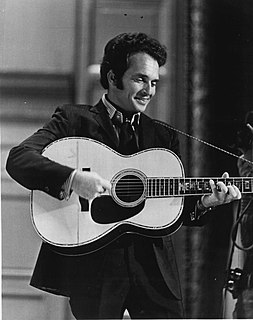A Quote by Ben Gibbard
Every record we do there are always two camps. There's the camp that's like, "I love it. It sounds different than the last one." There are the people that are like, "I want it to sound like the last one." You can't please everybody all the time, but I think for the most part we tend to maintain a healthy level of self-reference to kind of make sure we continue to push things forward.
Related Quotes
It wasn't just like, "I want to make a record that sounds like classic rock" at all. It was more like, "I want to make a record that is a little more unsettling and maybe isn't as easily understood now." That just seemed more important, like, for me to make as an artist, than it was to make something to make people feel safe right away.
More than anything, I wanted to make sure that everybody was a pusher of difference. And they had to be able to do it in a communicative way, not esoterically. Because there are a lot of people who push things forward but sometimes only you and two people out of 500 in the room get it, but you want somebody who has mastered their craft so well that an 8-year-old gets it just like an 80-year-old gets it. They get the same visceral feeling.
On the very last day of shooting [of The Last King of Scotlang], I remember wanting to get the [Idi Amin] character out of me right away, as much as I could. You literally take a bath to wash him off you. Luckily, I went into another part not so long afterwards, so I was kind of able to push it away a little bit. But speech patterns, and little sounds, particularly colloquial things, like the way you ask questions or might respond, were sticking with me, probably because I'd worked so hard to make it a part of my everyday way of expressing myself.
I developed in my head that I'm never any better than my last concert or the last time I played, so it's like an audition each time. You get nervous just before going onstage. I still have that, but I think it's more like concern. You're concerned about the people - like meeting your in-laws for the first time.
I call it "being interrupted by success." We had done The Soft Bulletin, which came out in 1999, and we knew we that were gonna make another record before too long. But in between this, we were still in this mode of kind of just - not re-creating what we could be, but kind of doing different things. For the longest time in the Flaming Lips we were like, "Make a record, go on tour. Come back, make another record," and you know, I think, frankly, we were kind of like, "There's more to life than just recording records and going on tour."
I definitely prefer things to be dark, I definitely prefer things to not be particularly obvious. I like a lot of mystery in music, and I like it when things don't sound just like what they sound like always. But at the same time I like everything to sound very earnest and honest. So I don't really think that I have a definite stamp, but if people see that, that's awesome.
I think as far as the Miami one - I don't speak for the other two - but as far as the Miami one goes, I just think that there is a level of like glamour to it and you see sexy people, things happening to the rich people. It kind of takes you to a different world. I think that is kind of part of the success.
I don't know if it's possible to affect my ego any more. There's no room left. For me, I think I make music like the way I think it should be made, like what rock should sound like. It has nothing to do with the current marketplace. And so from that state of mind, it's gonna sound different from anything else out there. And when something sounds different, I think that can be inspiring to other musicians.
There's two or three kids out there trying to make good music, and the rest of them sound like it's been strained through some kind of white toast or something. It all sounds just too neat and perfect, with no surprise to it at all. No story, no nothing. It's like building cars, like an assembly line. It doesn't sound like anything that came from a guitar.
Keeping fans loyal is a delicate balance. Therein lies the challenge for any band that's more than a couple albums deep. It's like, how do you continue to make records that are representative of who you are that your fans will recognize as your band, while still trying to push things forward and present new sounds for people.

































